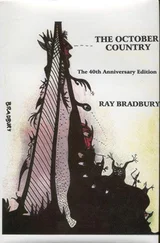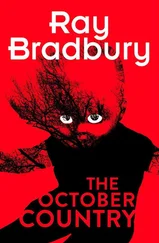"Well, I've kept you waiting long enough," he said, peering at me from that distance which drinking adds between people and which, at odd turns in the evening, seems closeness itself. "I'll tell you about my murder. I've never told anyone before; believe me. Do you know John Oatis Kendall?"
"A minor writer in the twenties, wasn't he?" I said. "A few books. Burnt out by '31. Died last week."
"God rest him." Mr. Stone lapsed into a special brief melancholy from which he revived as he began to speak again.
"Yes. John Oatis Kendall, burnt out by the year 1931, a writer of great potentialities."
"Not as great as yours," I said, quickly.
"Well, just wait. We were boys together, John Oatis and I, born where the shade of an oak tree touched my house in the morning and his house at night, swam every creek in the world together, got sick on sour apples and cigarettes together, saw the same lights in the same blonde hair of the same young girl together, and in our late teens went out to kick Fate in the stomach and get heat on the head together. We both did fair, and then I better and still better as the years ran. If his first book got one good notice, mine got six, if I got one bad notice, he got a dozen. We were like two friends on a train which the public has uncoupled. There went John Oatis on the caboose, left behind, crying out, 'Save me! You're leaving me in Tank Town, Ohio; we're on the same track!' And the conductor saying, 'Yes, but not the same train! ' And myself yelling, ' I believe in you, John, he of good heart, I'll come back for you!' And the caboose dwindling behind with its red and green lamps like cherry and lime pops shining in the dark and we yelling our friendship to each other: 'John, old man!'
'Dudley, old pal!' while John Oatis went out on a dark siding behind a tin baling-shed at midnight and my engine, with all the flag-wavers and brass bands, boiled on toward dawn."
Dudley Stone paused and noticed my look of general confusion.
"All this to lead up to my murder," he said. "For it was John Oatis Kendall who, in 1930, traded a few old clothes and some remaindered copies of his books for a gun and came out to this house and this room."
"He really meant to kill you?"
"Meant to, hell! He did! Bang! Have some more wine? That's better."
A strawberry shortcake was set upon the table by Mrs. Stone, while he enjoyed my gibbering suspense. Stone sliced it into three huge chunks and served it around, fixing me with his kindly approximation of the Wedding Guest's eye.
"There he sat, John Oatis, in that chair where you sit now. Behind him, outside, in the smokehouse, seventeen hams; in our wine cellars, five hundred bottles of the best; beyond the window open country, the elegant sea in full lace, overhead a moon like a dish of cool cream, everywhere the full panoply of spring, and Lena across the table, too, a willow tree in the wind, laughing at everything I said or did not choose to say, both of us thirty, mind you, thirty years old, life our magnificent carousel, our fingers playing full chords, my books selling well, fan mail pouring upon us in crisp white founts, horses in the stables for moonlight rides to coves where either we or the sea might whisper all we wished in the night. And John Oatis seated there where you sit now, quietly taking the little blue gun from his pocket."
"I laughed, thinking it was a cigar lighter of some sort," said his wife.
"But John Oatis said quite seriously: 'I'm going to kill you, Mr. Stone.'
"What did you do?"
"Do? I sat there, stunned, riven; I heard a terrible slam! the coffin lid in my face! I heard coal down a black chute; dirt on my buried door. They say all your past hurtles by at such times. Nonsense. The future does. You see your face a bloody porridge. You sit there until your fumbling mouth can say, 'But why, John, what have I done to you?'
"'Done!' he cried.
"And his eyes skimmed along the vast bookshelf and the handsome brigade of books drawn stiffly to attention there with my name on each blazing like a panther's eyes in the Moroccan blackness. 'Done!' he cried, mortally. And his hand itched the revolver in a sweat. 'Now, John,' I cautioned. 'What do you want?'
"'One thing more than anything else in the world,' he said, 'to kill you and be famous. Get my name in headlines. Be famous as you are famous. Be known for a lifetime and beyond as the man who killed Dudley Stone!'
"'You can't mean that!'
"'I do. I'll be very famous. Far more famous than I am today, in your shadow. Oh, listen here, no one in the world knows how to hate like a writer does. God, how I love your work and God, how I hate you because you write so well. Amazing ambivalence. But I can't take it any more, not being able to write as you do, so I'll take my fame the easy way. I'll cut you off before you reach your prime. They say your next book will be your finest, your most brilliant!'
"'They exaggerate.'
"'My guess is they're right!' he said.
"I looked beyond him to Lena who sat in her chair, frightened, but not frightened enough to scream or run and spoil the scene so it might end inadvertently.
"'Calm,' I said. 'Calmness. Sit there, John. I ask only one minute. Then pull the trigger.'
"'No!' Lena whispered.
"'Calmness,' I said to her, to myself, to John Oatis.
"I gazed out the open windows, I felt the wind, I thought of the wine in the cellar, the coves at the beach, the sea, the night moon like a disc of menthol cooling the summer heavens, drawing clouds of flaming salt, the stars, after it in a wheel toward morning. I thought of myself only thirty, Lena thirty, our whole lives ahead. I thought of all the flesh of life hung high and waiting for me to really start banqueting! I had never climbed a mountain, I had never sailed an ocean, I had never run for Mayor, I had never dived for pearls, I had never owned a telescope, I had never acted on a stage or built a house or read all the classics I had so wished to read. All the actions waiting to be done!
"So in that almost instantaneous sixty seconds, I thought at last of my career. The books I had written, the books I was writing, the books I intended to write. The reviews, the sales, our huge balance in the bank. And, believe or disbelieve me, for the first time in my life I got free of it all. I became, in one moment, a critic. I cleared the scales. On one hand I put all the boats I hadn't taken, the flowers I hadn't planted, the children I hadn't raised, all the hills I hadn't looked at, with Lena there, goddess of the harvest. In the middle I put John Oatis Kendall with his gun-the upright that held the balances. And on the empty scale opposite I laid my pen, my ink, my empty paper, my dozen books. I made some minor adjustments. The sixty seconds were ticking by. The sweet night wind blew across the table. It touched a curl of hair on Lena's neck, oh Lord, how softly, softly it touched…
"The gun pointed at me. I have seen the moon craters in photographs, and that hole in space called the Great Coal Sack Nebula, but neither was as big, take my word, as the mouth of that gun across the room from me.
"'John,' I said at last, 'do you hate me that much? Because I've been lucky and you not?'
"'Yes, damn it!' he cried.
"It was almost funny he should envy me. I was not that much better a writer than he. A flick of the wrist made the difference.
"'John,' I said quietly to him, 'if you want me dead, I'll be dead. Would you like for me never to write again?'
"'I'd like nothing better!' he cried. 'Get ready!' He aimed at my heart!
"'All right,' I said, 'I'll never write again.'
"'What?' he said.
"'We're old old friends, we've never lied to each other, have we? Then take my word, from this night on I'll never put pen to paper.'
Читать дальше





